Why Trump's response to Capitol siege evokes memories of Charlottesville
Trump's rhetoric "emboldens" acts of political violence, NAACP's president says.
After pro-Trump rioters violently stormed the U.S. Capitol Wednesday, President Donald Trump's message of "love" to the mob took many Americans back to a dark chapter from the first year of his presidency -- when he referred to the white supremacists who violently descended upon Charlottesville, Virginia, in 2017 as "very fine people."
According to NAACP President Derrick Johnson, the president's response to both events highlights “Trump's ability to use the tool of division and racism” to “embolden” acts of political violence from his supporters.
"This is something that we must address, and if we don't, it will continue to erode and undermine our democracy," Johnson told ABC News.
Vanessa Beasley, a professor of communication studies at Vanderbilt University who studies presidential rhetoric, told ABC News that Trump's response to the insurrection at the U.S. Capitol is "a continuation and extension" of Charlottesville. The instances showcase a defining rhetorical strategy of his presidency: An "us versus them" messaging, she explained.
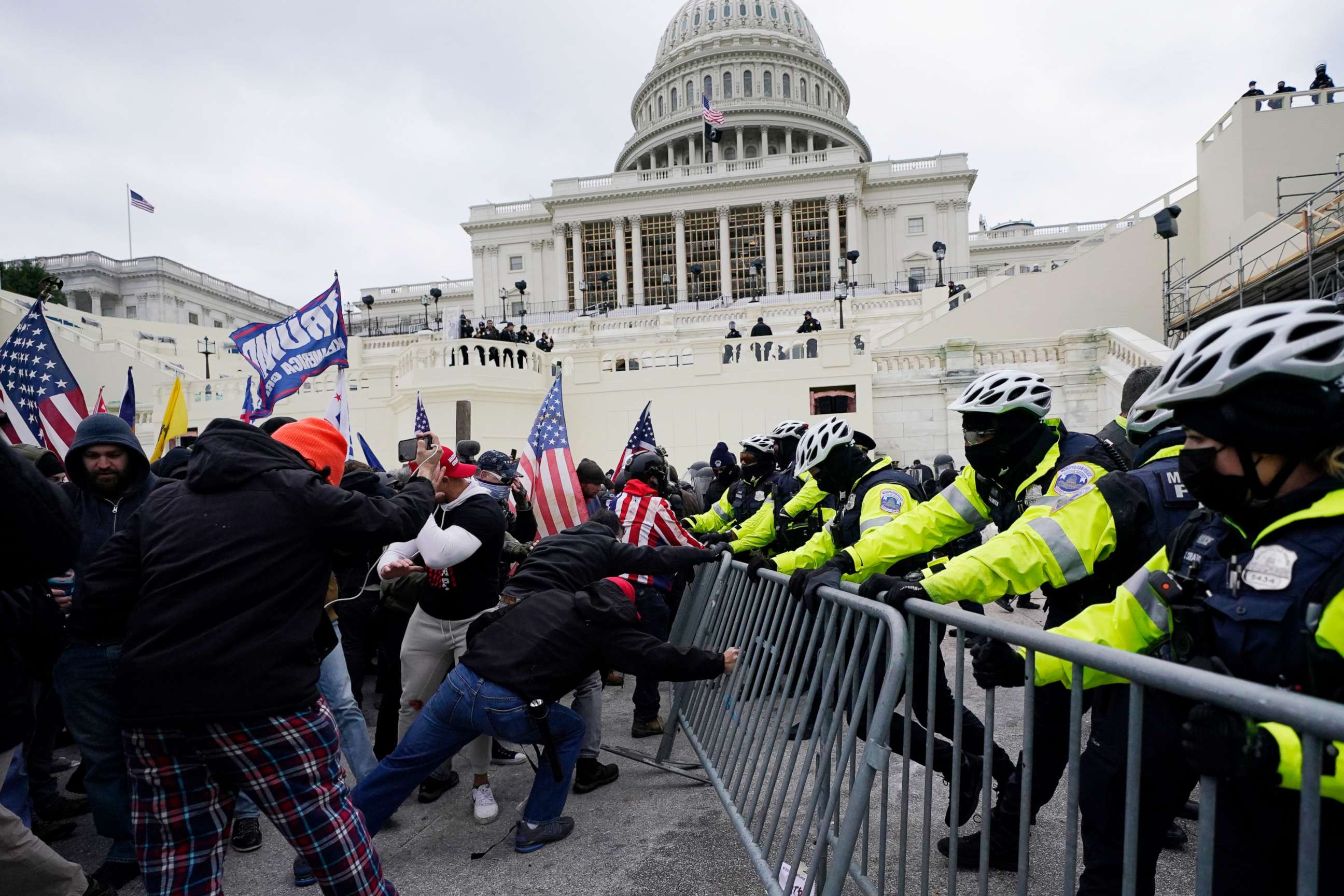
"Many presidents have a really stark difference between what they sound like on the campaign trail and what they sound like in office," she said. "You have to speak as if there was one nation ... but [Trump] never changed."
According to Paul Elliot Johnson, a communications professor at the University of Pittsburgh, Trump's messaging is rooted in "victimhood" and a feeling of being threatened, which has emboldened some racist and violent actions by his supporters.
"You begin to interpret almost everything as an assault on your person, as an assault on your freedom," he told ABC News, pointing to Trump's long list of grievances, which includes his campaign against the removal of Confederate statues to his false claims about the 2020 election being stolen from him.
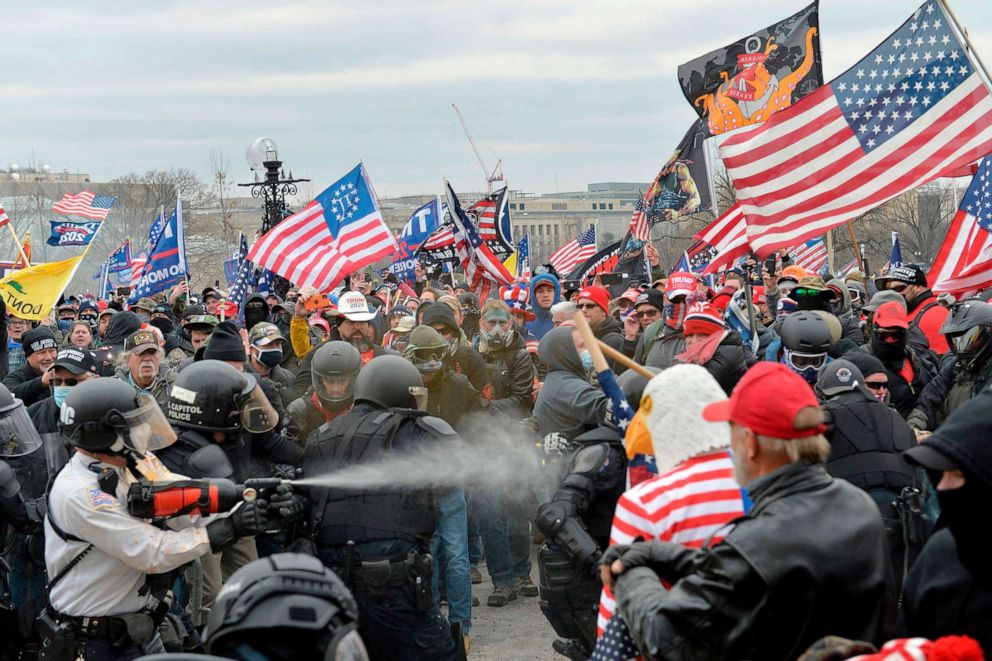
How Trump fanned the flames post-Charlottesville
In a menacing scene that kicked off a deadly weekend about six months into Trump’s presidency, hundreds of so-called alt-right groups swarmed the University of Virginia campus carrying tiki torches to protest the removal of Confederate monuments.
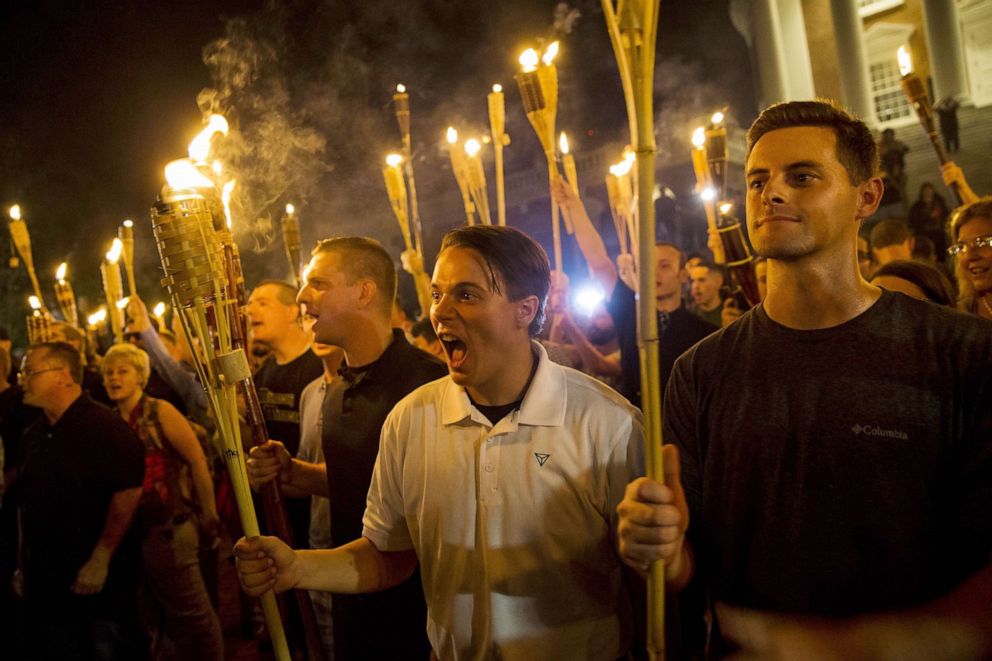
During that “Unite the Right” rally many chanted racist, Nazi-associated phrases and violently clashed with counter-protesters. But as tensions reached a fever pitch, a call from a growing chorus of bipartisan politicians urging Trump to condemn the violence and diffuse the situation went unanswered.
Two days later, the president called out some “troublemakers” when pressed by reporters, but failed to condemn white supremacists and infamously equated them with counter-protesters, saying there were "very fine people on both sides."
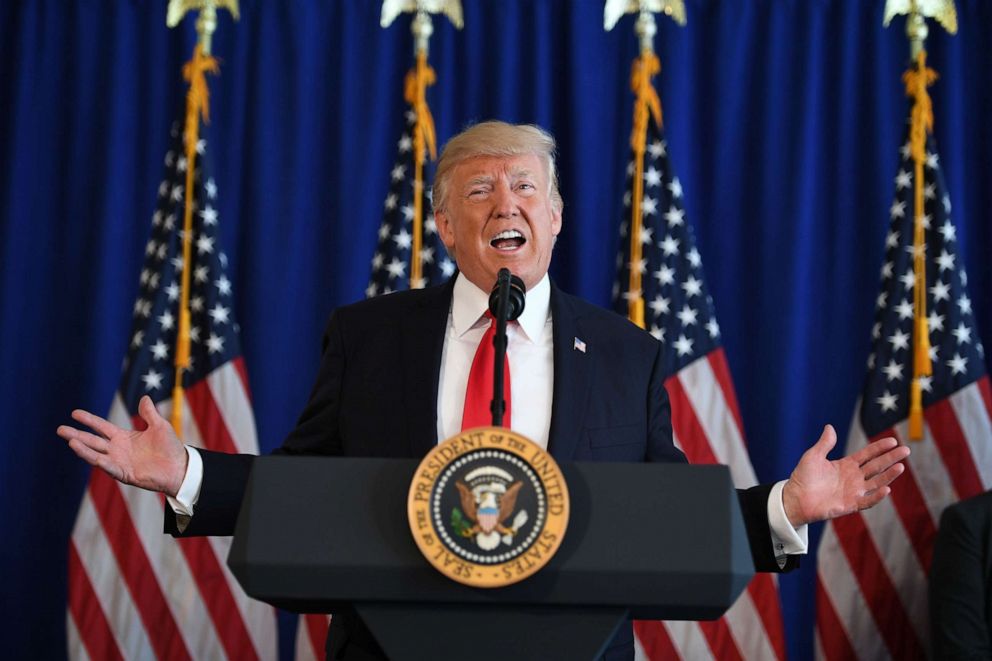
That comment was a rhetorical "wink" to his supporters indicating that he was still on their side, according to Beasley.
"I would describe [it] as a signal to his followers that he is still his authentic self, and he is saying these things because he has to and not because he means them," Beasley said.
Trump's response to Charlottesville quickly became a defining chapter in his presidency. Biden even invoked Trump's "some very fine people" remarks in his announcement as a presidential candidate.
“With those words, the president of the United States assigned a moral equivalence between those spreading hate and those with the courage to stand against it," Biden said. "And in that moment, I knew the threat to this nation was unlike any I had ever seen in my lifetime.”
Trump repeatedly defended his post-Charlottesville reaction, insisting in 2019 that he “answered perfectly.” And during the presidential debate in September, while addressing his failure to condemn white supremacist groups, Trump appeared to give a shout-out to The Proud Boys, a far-right group that engages in violent political actions, by telling its members to "stand back and stand by” -- a moment that the group reportedly relished.
Johnson said the president has “emboldened” acts of “political violence” and inflamed racial tensions throughout his presidency by refusing to directly condemn white supremacists and condone acts of political violence by his supporters.
“Anytime you have a person who is sitting in the most powerful seat on the globe, and he gives license to individuals to carry out harmful activities based on race, or the xenophobic beliefs, it emboldens a level of violence that we have seen escalate over the last four years,” he said.
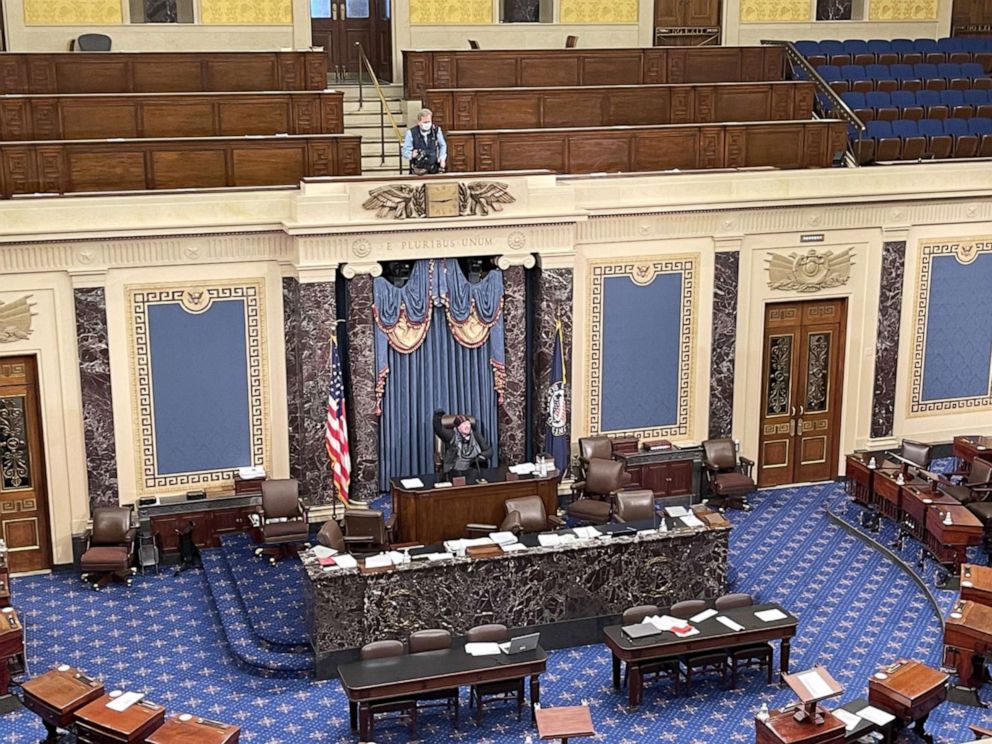
How Trump incited a mob at the U.S. Capitol
On Wednesday, after weeks of refusing to concede and making false claims that the election was stolen from him, Trump urged his supporters to head to the Capitol to protest. In a rally ahead of the vote, he urged them to have a “strong” response and stated that the protests will be "wild."
Amid proceedings in the Senate to certify Joe Biden as the winner of the 2020 election, thousands of rioters -- including armed insurrections and some donning symbols associated with alt-right and white supremacist groups -- breached the U.S. Capitol and clashed with law enforcement, eventually resulting in the death of five people.
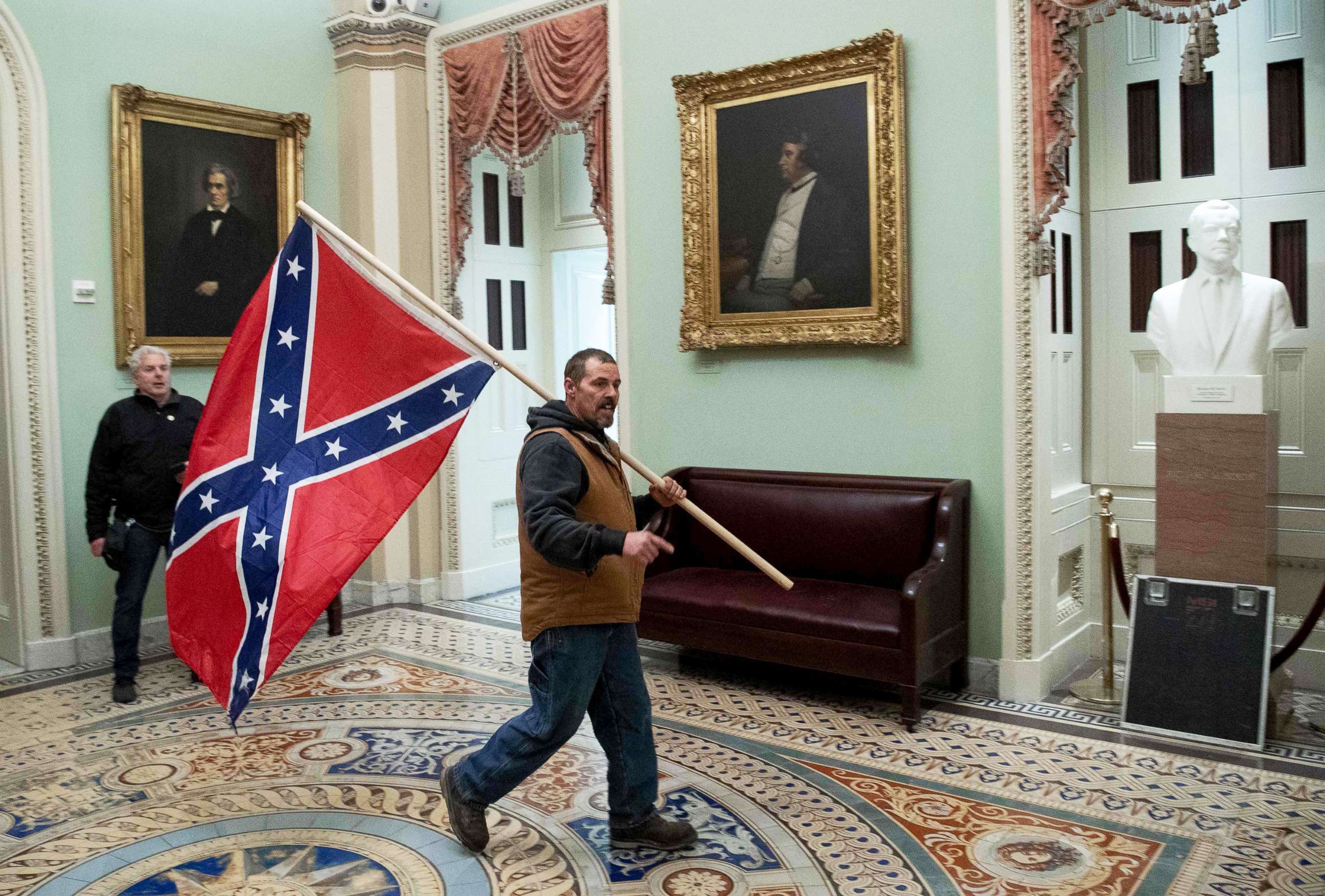
As bipartisan pressure mounted on Trump to condemn the violence and urge protesters to disperse, he called on his supporters to be “peaceful” and “go home” but did so while repeating his false claim that the election was stolen from him.
"I know your pain. I know your hurt, but you have to go home now," Trump said in the video which was eventually taken down by Twitter, Instagram and Facebook. “We can't play into the hands of these people. We have to have peace. So go home. We love you. You're very special,” he added.
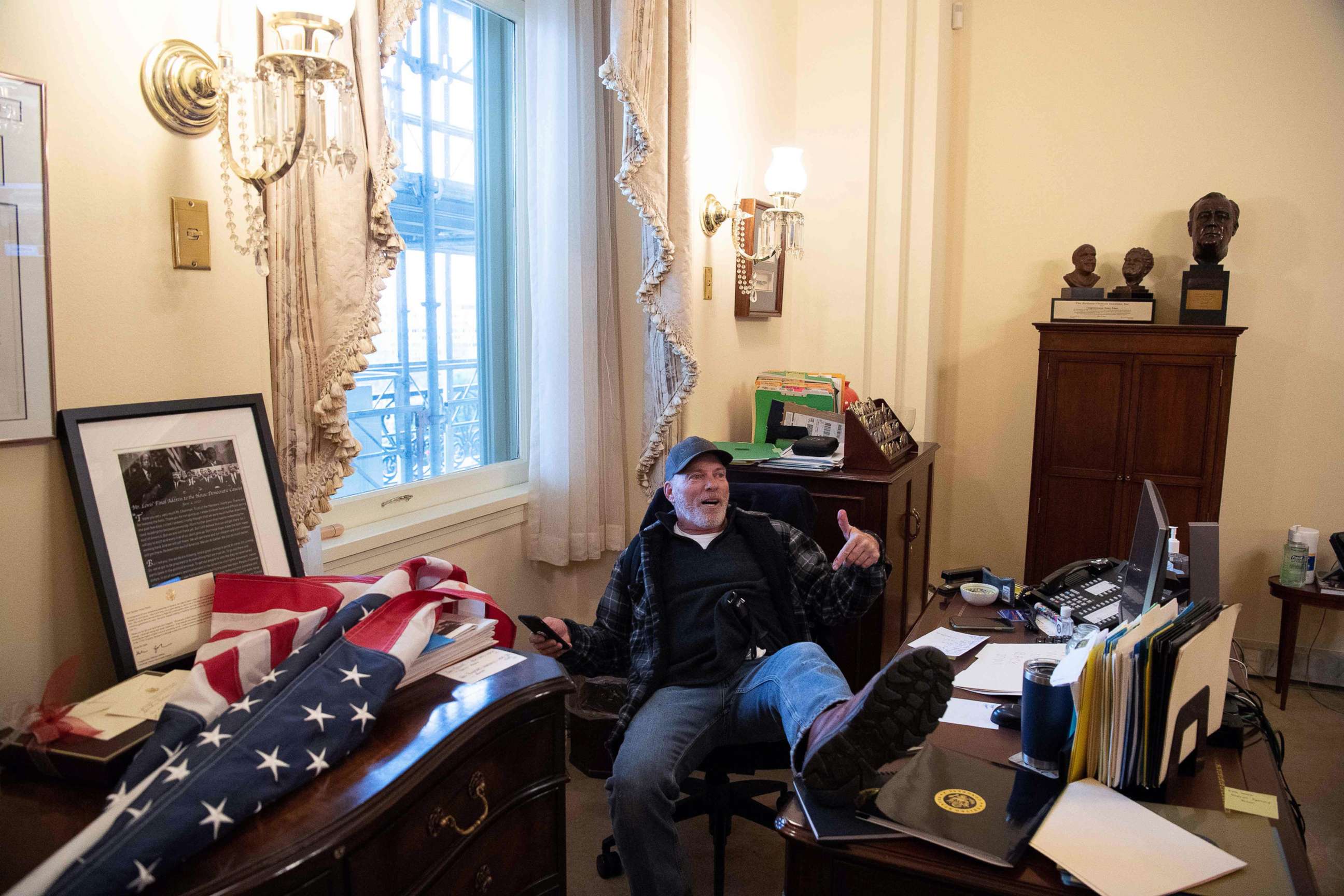
For Susan Bro, the mother of Heather Heyer who was killed in Charlottesville when a white supremacist plowed a car into a group of counter-protesters, Trump's response on Wednesday was reminiscent of Charlottesville.
“I’m mad as hell. I’m mad at so many people. I’m particularly mad at the president,” Bro told The Guardian reporter Lois Beckett on Wednesday, adding that Trump's response was "basically the ‘very fine people’ speech all over again.”




